We’ve found lots of scams this week, including ones relating to Amazon, Walmart, Netflix, and ShareFile. Would you have been able to spot all these scams?
Amazonitara Scam (Fake Amazon Shopping Site)
Have you come across an online shop called Amazonitara[.]com? Many people are wondering if it’s a scam. Here’s the answer: it is!
![Spot the Scam_Amazonitara[.]com](https://news.trendmicro.com/api/wp-content/uploads/2023/05/Spot-the-Scam_Amazonitara.com_-1024x768.jpg)
Featuring Amazon’s logo in the header, this website is trying to impersonate the legit Amazon website. (Note: the official Amazon website’s URL is amazon.com). Besides the fact that the website uses Amazon’s logo, there are several other red flags:
- Rather inexplicably, the site’s search bar has the Best Buy logo.
- The website is very young (created in November 2022).
- There is no contact phone number (just an email address).
- There are no reviews.
- There is no social media presence — other than people warning others about the scam!
Shopping on such a questionable website can lead to financial loss and even identity theft as scammers can capture your personally identifiable information (PII) (i.e. email address, Social Security number, credit card number, and more). Plus, there is no guarantee when it comes to any disputes regarding exchanges or refunds. Be careful!
Shop Safely with ScamCheck
To avoid online shopping scams, you should always do your research and check for the red flags mentioned above. Or, you can use a FREE tool to help you fight scams with ease! Trend Micro ScamCheck is a free browser extension and mobile app for detecting scams, phishing attacks, malware, and dangerous links. Download today and surf the web with confidence!
The ScamCheck browser extension blocks dangerous sites in real time! (Available on Safari, Google Chrome, and Microsoft Edge.)

The ScamCheck app automatically detects and filters scams and spam 24/7. (Available for Android and iOS).
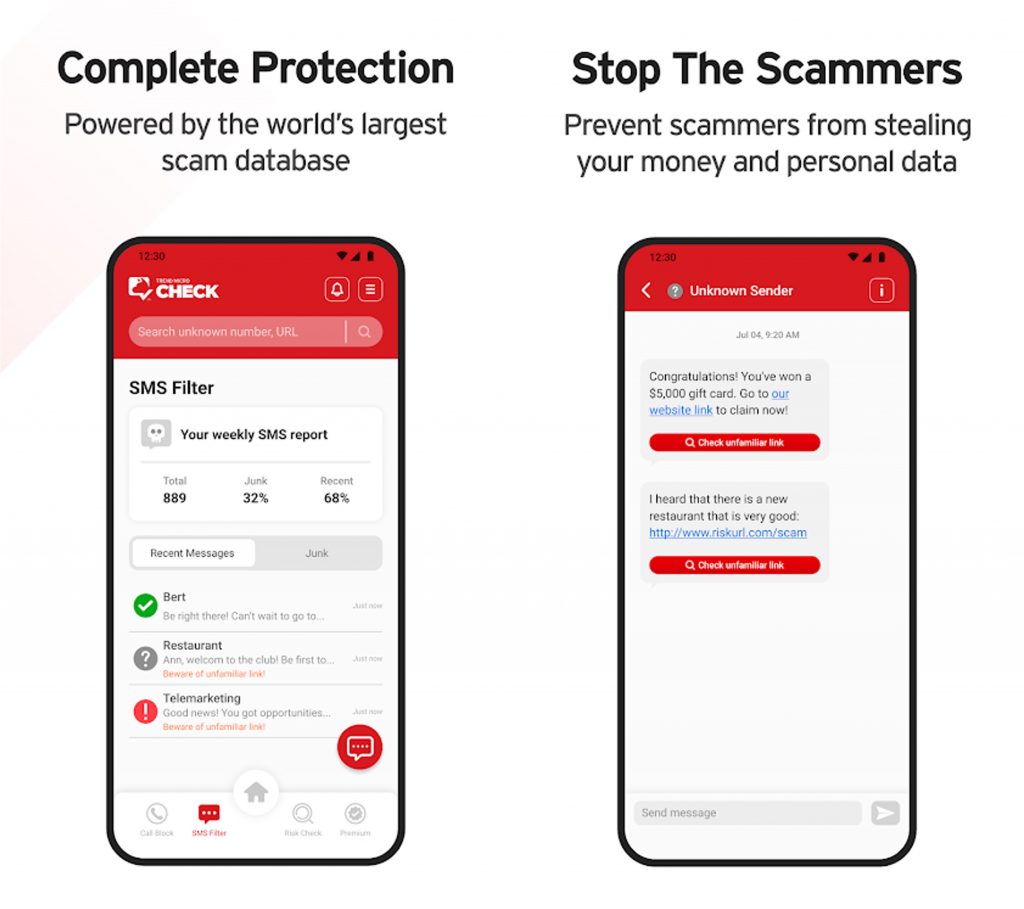
Check out this page for more information on ScamCheck.
Phishing Scams
Posing as trusted brands, and under a variety of pretenses, scammers love to spread phishing links via social media, text messages, or email — always with the goal of stealing your PII. They will prompt you to click on attached phishing links to complete various tasks, e.g. verify an account, update billing information, or more. These phishing links will then lead to scam/phishing sites designed to record any PII you submit. With your stolen information, scammers can commit identity theft or other crimes:
Amazon Phishing Text
Besides impersonated shopping sites, Amazon is also often featured in phishing attempts. This week, scammers sent out fake security notifications to urge people to “restore access” using the scam link:
- Amazon: Suspicious activity detected on your account, leading to its temporary freeze. Verify your identity to restore access at <URL>
If you click on the attached link, you will be led to a fake Amazon login page that closely resembles the legitimate one. Any login credentials you enter here will end up in scammers’ hands. Watch out!
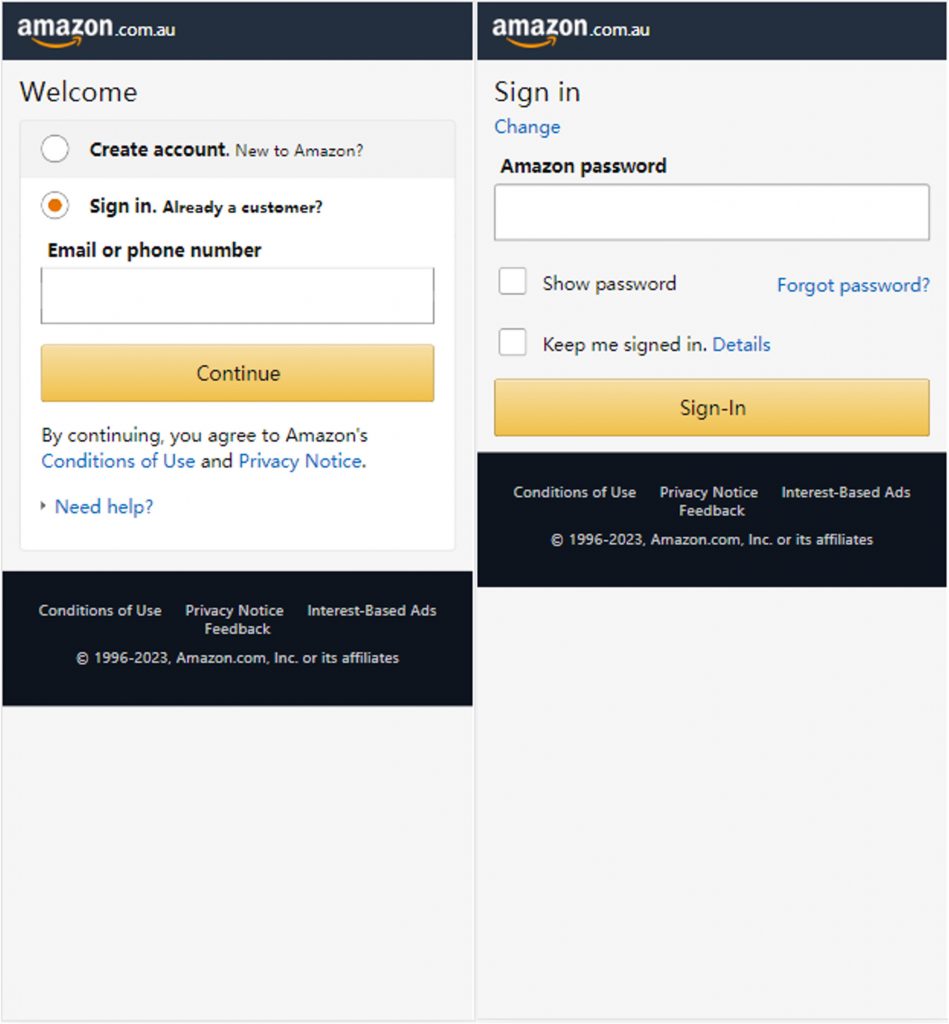
Walmart
This week, we’ve detected lots of fake Walmart refund notification texts:
- Walmart Refund Notification <URL>
If you fall for one and click the link, it will take you to a fake survey page that says you can win expensive electronic products by completing the questionnaire:
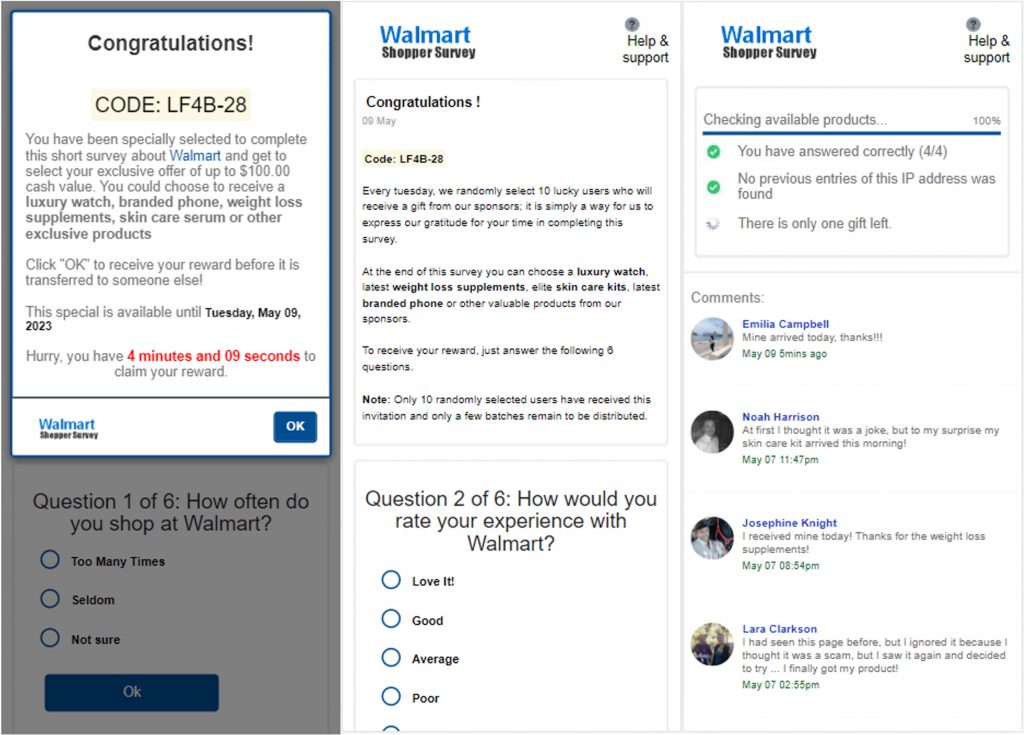
The page will eventually ask for your credentials, including your name, address, and credit card information. Scammers will use all the data for their own good — don’t let them!
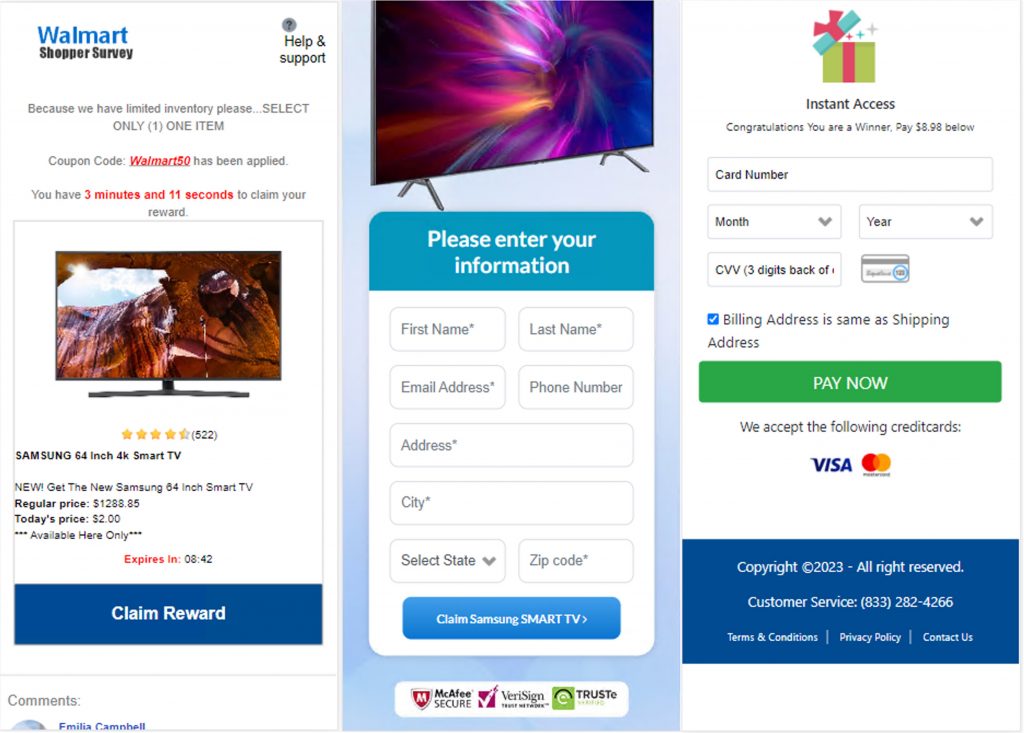
Netflix Membership Text Scam
Over the last week, we detected over 3,000 instances of this Netflix scam text message that falsely claims you need to update your account’s billing information:
- Your Netflix membership is on hold. We’re having some trouble with your current billing information. To using your account as normally, please follow the instructions by click on link below : <URL> Netflix Services
Once clicked on, the attached link will take you to a copycat version of the real Netflix website such as the one below. Again, any information entered onto it will be accessible by the scammers!

ShareFile “Secure Email” Phishing
Scammers also love to use emails to trick people. Pretending to be sending some attachments via ShareFile, scammers embedded links to bogus ShareFile login pages to try to trick you into clicking on them:
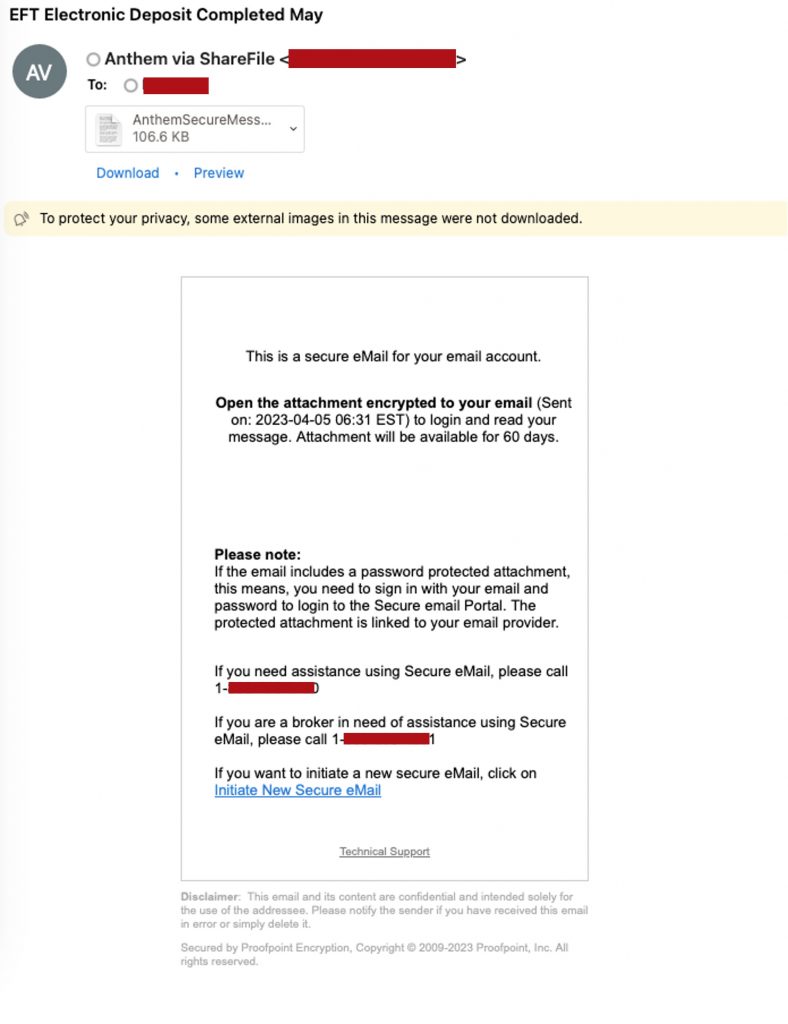
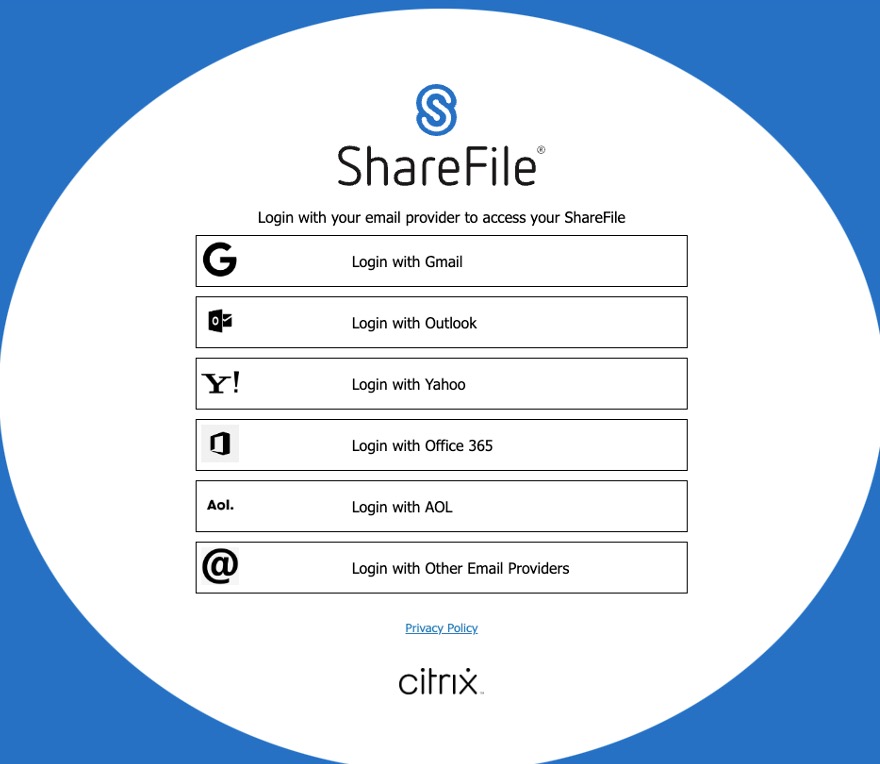
What’s tricky is that the login page is designed to look 100% identical to the real one — right down to the legitimate Microsoft URL at the top of the window. However, although it’s a legitimate URL, the address bar itself is fake — it’s just an image and part of the page’s overall design.
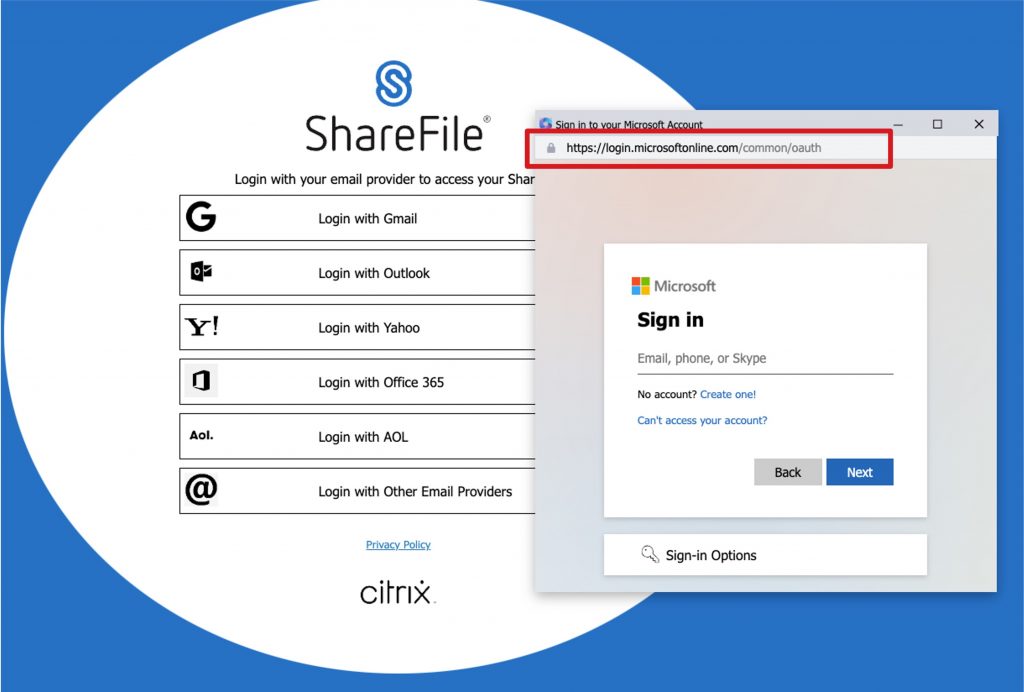
Tips to Stay Safe from Scams
- Double-check the sender’s mobile number/email address. Even if it seems legitimate, think twice before you take any action.
- Free gifts are a red flag.
- Only use official websites/applications. Never click on dubious links! (Use Trend Micro ScamCheck)
- Get alerted with Trend Micro ID Protection if any of your PII gets leaked.
- Finally, add an extra layer of protection to your devices with Trend Micro Maximum Security. Its Web Threat Protection, Ransomware Protection, Anti-phishing, and Anti-spam Protection will help you combat scams and cyberattacks.
If you’ve found this article an interesting and/or helpful read, please SHARE it with friends and family to help keep the online community secure and protected. Also, please consider leaving a comment or LIKE below.
